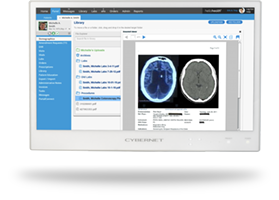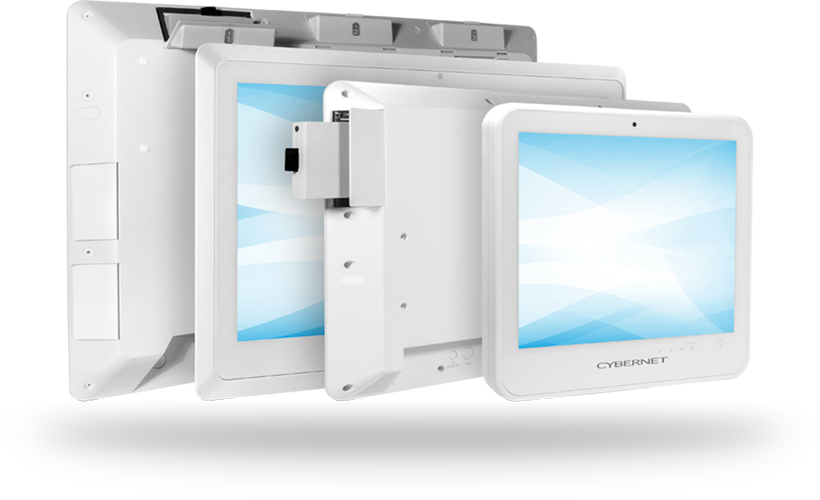The digital transformation of healthcare extends to all branches of patient care and treatment. Oral health, or dentistry, is one of these branches, and medical AI computers look to provide benefits ranging from customized dental plans to robotics in healthcare.
- What Is AI in Dentistry?
- Key Applications of AI in Dentistry
- Benefits of AI in Dental Practice
- Challenges of Using AI in Dentistry
What Is AI in Dentistry?
Artificial intelligence (AI) is a technology that allows AI computers to mimic most forms of human thinking, such as planning future events and understanding human language. Oral health, that branch of medicine that deals with the health of a patient's teeth, gums, and the surrounding oral-facial system, benefits in numerous ways.
AI has been adopted in all dental specialties:
- Operative dentistry
- Oral and maxillofacial surgery
- Orthodontics
- Periodontics
- Prosthodontics
Key Applications of AI in Dentistry
AI can gather, sort, process, and analyze large amounts of data. Using sophisticated algorithms like machine learning (ML) and deep learning (DL), it can perform a variety of tasks unmatched by even powerful, but non-AI, medical computers. For dentistry, some of these include:
Diagnostic Assistance
The most common use of AI dentistry is in the detection of pathologies: bone loss, dental caries (also known as tooth decay), and periodontal disease, to name a few. AI can help by identifying the most minor deviations in the patient's mouth and jaw structure. Dental professionals can quickly and accurately make a diagnosis by analyzing the images.
Treatment Planning
AI is ideal for solving problems in prosthodontics, or that branch of dentistry dealing with the design, manufacturing, and fitting of artificial replacements for teeth and other parts of the mouth. These prosthetics can be created with a high degree of accuracy and tailored to the patient's case. Algorithms can generate changes in the patient's appearance via pre- and post-treatment facial imaging. Dental providers can present the images to the patient for information and reassurance.
Robotics and Automation
Robot use in the healthcare industry is already a reality: the most famous are the Da Vinci systems, which are used in everything from hernia repair to the removal of cancerous tumors. Dental practitioners are doing something similar with the Yomi robot, whose AI keeps the dentist on track when placing implants, from their placement in the patient's gum to the correct angle, depth, and position.
Administrative Efficiency
AI's ability to handle massive amounts of data makes it ideal to handle many of the back-office tasks. Through ML, the AI can track patients' progress and treatment through the provider's dental practice software, like EMR. It can also flag patients who are at risk of skipping appointments, missing payments, or failing to keep up with treatment plans.
Benefits of AI in Dental Practice
The application of AI in dentistry, once set up and running properly, provides numerous benefits to the dental practice.
- Improved diagnostic accuracy, such as the earlier detection of oral diseases. Dental providers can then make informed clinical judgments more quickly, determine the best modalities for their patients, and eliminate unnecessary procedures.
- AI-based dental treatment plans enable dentists to customize their procedures to meet each patient's specific issues, which can lead to better outcomes for patients and less waste and time spent on unnecessary (and costly) standard methods of treatment.
- Predictive analytics allows dental practitioners to determine procedure outcomes before treatment starts, resulting in better short- and long-term results and care for patients.
- AI-driven robots, like those mentioned earlier, can minimize tissue damage during dental surgeries, resulting in improved patient outcomes in the shortest possible time.
- Enhance your dental practice's profitability by reducing uncertainty in patient care, increasing case acceptance, and minimizing the risk of denials from insurance companies and governmental health agencies.
Challenges of Using AI in Dentistry
The use of AI in dentistry is still new. Dental practices looking to implement the technology should consider the following:
Data Quality and Privacy
AI heavily relies on massive amounts of data to function properly, much of which is patient data. Data security in healthcare, which dentistry is part of, is highly confidential and protected by laws such as HIPAA. Dental offices will need to ensure their AI-powered devices have plenty of cybersecurity features, like RFID security cards and Imprivata Single Sign-On login.
Regulation and Standardization
Who validates the datasets used by the AI in the medical computers? How does the AI flag dental X-rays and similar scans? What standards do the algorithms follow when processing insurance claims and checking for payment integrity? These questions and more are addressed by the ADA and its various standards for AI use in dentistry. Dental offices looking to add AI to their workflow should review them closely.
Cost and Access
Finally, a dental practice needs to figure out if the technology is worth the high costs (that is, study the cost-effectiveness of AI in dental administration, especially in the long term). What, exactly, will the AI be used for? Help with diagnosis? Automate office tasks? Aid in patient engagement? Expenses not only include hardware and software, but also the costs of integrating the systems with current equipment, as well as training staff to use everything effectively. An original equipment manufacturer can answer many of these questions and more.
Maximize Your AI in Dentistry Through Cybernet Manufacturing
Artificial intelligence is making inroads in all fields of the healthcare sector, including oral health (dentistry). Dental providers utilize AI dentistry in a wide range of patient care, from analysis of pathologies to record-keeping.
Contact Cybernet Manufacturing if you're interested in bringing AI into your dental practice. Our experts are well-versed in healthcare and will happily cover how our pre-built medical computers are applied in oral care, with and without AI. And don't worry if you can't find what you're looking for in our PC lineup. We have complete control of the design and build of our products, and are confident that we can build the right computer to meet your exact wants and needs.

